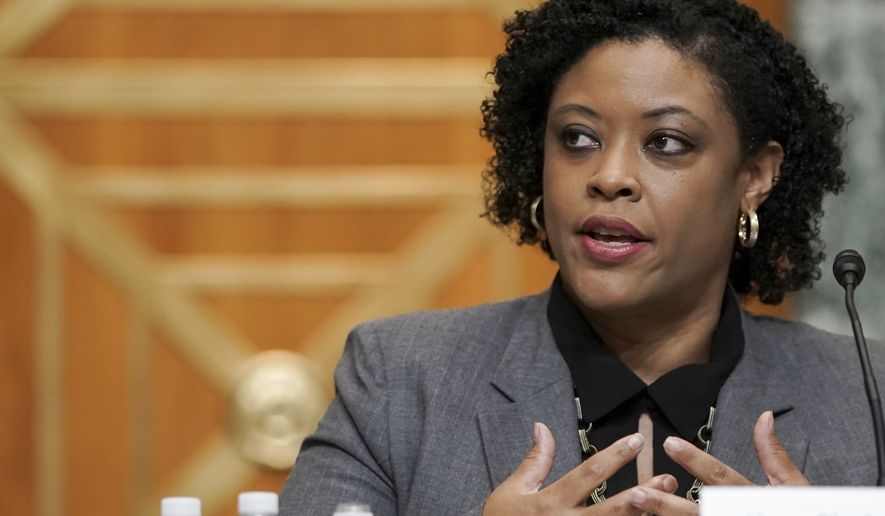The White House’s acting budget office chief on Tuesday said that President Biden’s agenda is in jeopardy if Congress won’t go along with his trillions of dollars in proposed tax hikes.
“My guess is if the Senate doesn’t pass the offsets that the spending is also in danger,” Shalanda Young, deputy director of the Office of Management and Budget, told the Senate Budget Committee. “So we [would] have to see the full package the Senate and House would move on.”
Sen. Rick Scott, Florida Republican, had asked Ms. Young how the math on Mr. Biden’s big-spending budget plans would work without all of his proposed tax increases.
Ms. Young was testifying on Mr. Biden’s $6 trillion budget request for the fiscal year that starts Oct. 1.
The budget blueprint projects a $1.8 trillion federal deficit for fiscal 2022, which would be down from $3 trillion-plus deficits in 2020 and 2021 amid a surge of coronavirus-related spending.
The administration doesn’t want to see cuts to mandatory programs like Medicare and Social Security — programs that budget analysts across the political spectrum agree are the key drivers of an ever-expanding national debt, Ms. Young said.
“We are reducing the deficit, but as you know we have an aging society — which is part of the structural growth in spending we’re not addressing,” she said. “We don’t think we should be cutting Social Security and Medicare at this time.”
“And if the choice is between that and asking the wealthiest to pay more, that’s what we need to do.”
The president’s budget factors in his $2.3 trillion infrastructure proposal and a $1.8 trillion families spending plan.
The administration says that increasing taxes on corporations, the wealthy and investors will cover the cost of that $4 trillion in new spending in the long run.
Sen. Lindsey Graham of South Carolina, the top Republican on the panel, said there simply aren’t enough rich people to soak to make the math work on tax hikes alone.
“This budget will come to your neighborhood soon — there’s just not enough 1 percenters to bear all the load in this,” Mr. Graham said.
To fund his domestic agenda, Mr. Biden wants to increase the U.S. corporate tax rate from 21% to 28% and increase the top individual income tax rate from 37% to 39.6%, among other hikes.
Sen. Mitt Romney pressed Ms. Young on exactly what constitutes a “fair share” for the top 10% of earners to pay in taxes from the administration’s perspective.
“Should there be a higher percent that pays no income tax at all?” Mr. Romney, Utah Republican, asked Ms. Young.
“We … have to compare that to what they make compared to the top 1% and what they’re making,” she replied.
“The top 10% earn 40% of the income and are paying 71% of the taxes. And so should they be paying 80% of the taxes? 85? 90?” Mr. Romney pressed.
“I think we’d have to look at what they’re paying compared to what they make,” Ms. Young said.
Mr. Biden’s budget plan doesn’t get the federal government to balance in a 10-year window and annual deficits would still top $1 trillion over the next decade.
Federal debt held by the public would continue to grow to record levels over the next decade under the president’s plan, swelling to 117% of the size of the U.S. economy by 2031.
• David Sherfinski can be reached at dsherfinski@washingtontimes.com.




Please read our comment policy before commenting.